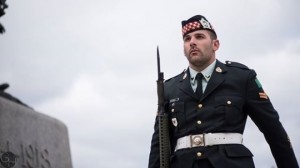Let’s talk about toxic religion!
***
Ask the people in Peshawar. (Though they might have a different answer than you’d think.) Ask in Paris. Ask anybody qui est Charlie. We could ask those affected by the Boko Haram militias spreading like a cancer from northeastern Nigeria, I suppose, if they were still alive, or if we cared about folks so unlike us and so far away. Even in boring old Canada, 2014 brought us faithful killings and rumours of more. What to do when religion goes murderous? (Spare a thought for doctors killed by Christian fundamentalists at abortion clinics, or women abused on Super Bowl Sunday. Beware the deadly fruit of any sort of fanaticism, any belief gone sour, whether it invokes God or racial superiority or football fever.)
You may have heard of “lone wolf” acts of terror in Canada, men allegedly inspired in the name of their Islamic leanings to kill peace-time soldiers who weren’t looking. (Ah, courage.) In the news recently were reports that Muslim Imams here in Ottawa were concerned at the spike of interest in Islam in the wake of the shootings at the national War Memorial and in Parliament itself. Muslim community leaders wondered aloud about some process of slowing down the new-found ardour they were seeing, and they questioned its source. How depressing! People are so desperate for a thing they can stand up for, I thought, they’ll fall for anything! Any port of committed action, however nutty, in an existential storm.
Commentators invoke loneliness and anomie, and lament that the mentally fragile, vulnerable to the attractions of religious madness, don’t get the help they need. What we rarely hear in the public debate is mention of moral bankruptcy, how entire societies and classes and governments appear to have little on their minds other than consumerism, the almighty GDP and personal comforts. How blind must we be to not see how hungry so many people are for a sense of meaning that rises above well I got mine and we’re the greatest country in the world and what’s wrong with those crazy bastards over there? And, more unsettling, right HERE.
North America – and, no doubt, for Muslims and many other sorts of barely tolerated immigrants in France and over much of Europe – is a hard place to be if you’re not on the winning side. (This is why sports are better than real life: one percent of players, no matter how good they were, could never kick the living snot out of a team ninety-nine times bigger, and keep on doing it and doing it.) No wonder the frustrated, “lookin’ like a dog that’s been beat too much / Till you spend half your life just coverin’ up” guys, even if they were Born in the USA or Ottawa or a Paris suburb, want to do something about it. Are we so smug, so insulated in whatever socioeconomic or cultural bubble we call home, that we really find such a search for meaning and usefulness incomprehensible? Yes. I think that most of us are.
Young men want to kill authority figures, or go fight with the “men of faith”. They want their lives to mean something, to stand for something. (Suddenly I think of DeNiro’s Travis Bickle in Taxi Driver: “Loneliness has followed me my whole life, everywhere….There’s no escape. I’m God’s lonely man….Listen, you fuckers, you screwheads. Here is a man who would not take it anymore. A man who stood up against the scum,…the dogs, the filth, the shit. Here is a man who stood up.” Talk about jihad!) This is all I could think of, hearing of an interest in Islam that was worrisome even to Muslim community leaders. It was days before I was able to consider another way of understanding it. There have to be some people (I thought, as the lights came on) who are just curious about what Islam really is. It’s slower to filter through than reflexive religious bigotry is, but after 9-11, after Charlie Hebdo or any number of atrocities committed by those who claim to honour the Arabian Prophet, there are always the voices, not always or even predominantly Muslim themselves, who say, This is not Islam. This is religion perverted to justify power-seeking and oppression.
And people learn something about the vast majority of Muslims, and they wonder what it is that compels believers to peacefully hold on to their faith in spite of suspicion, outright bigotry, and the humiliation, the resentment, the frustration, of constantly having to apologize for the misguided hatred of the fanatical few. I’m not denying that there are Travis Bickles out there who see in jihadist extremism a convenient container for their disaffection and their revenge fantasies. But listen: religion has been around for a lot longer than the fashionably modern rejection of it. There must be something more to religion than hatred and ignorance and division, or it couldn’t have survived. We shouldn’t judge a Book because of a Bickle who carries it around with his rage.
That’s why I went to (of all things!) my local celebration of World Religion Day.

